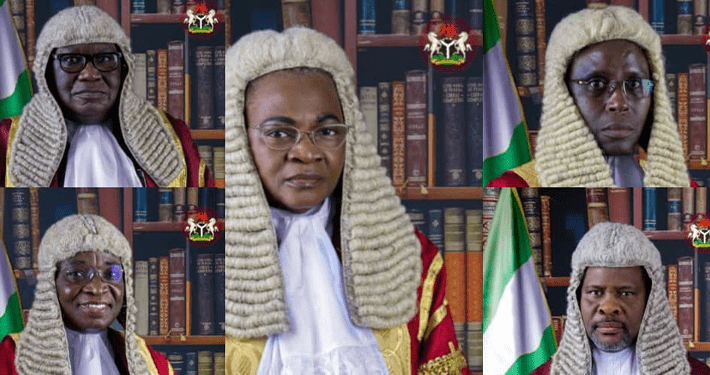Stakeholders have called for an increase in the number of justices at the apex and appellate courts. They also demand the amendment of section 187 of the 1999 Constitution to include that the disqualification or non-qualification of a deputy governor will not affect the governor-elect or governorship candidate of a political party.
The case for this amendment was made in a communique issued at the end of a two-day workshop on review of the 2023 election petitions tribunals and the appellate courts.
Kabiru Akanbi, the deputy chief registrar at the Court of Appeal headquarters and head of the election petitions tribunal, presented the communique.
Participants also agreed that Section 246 (3) of the extant Constitution should be altered to reflect the finality of the Court of Appeal’s decisions in all election appeals, including governorship appeals.
“All pre-election appeals should terminate at the Court of Appeal. The Constitution should be amended to provide that all pre and post-election matters shall be heard and determined before the winners of the election take the oath of office,” the communique said.
The statement also resolved that paragraph 25 (2) of the First Schedule to the Electoral Act that deals with Quorum be incorporated into Section 285 of the Constitution of the FRN 1999 (as amended) to read as “If the chairman of the tribunal or the presiding justice of the court who begins the hearing of an election petition is disabled by illness or otherwise, the hearing may be recommended and concluded by another chairman of the tribunal or presiding justice of the court appointed by the appropriate authority.”
According to the participants, other sections of the Constitution should be amended to address issues in election matters. Some participants also called for the use of Alternative Dispute Resolution (ADR) to be introduced into the nation’s electoral laws.
They further suggested that the court should encourage pre-election matters to be mediated through ADR. Participants said that the number of justices in the Supreme Court and Court of Appeal should be increased to make justice accessible to Nigerians.
“The negative publicity in which the judiciary is portrayed in bad light by the social media and other forces associated with it should be countered by a robust communications/media department to be established by the respective courts.
“In conclusion, the judiciary performed its constitutional role as an impartial arbiter and protector of the rule of law and will continue to do so in our nation’s journey and quest to build a truly democratic society”, they said.
The Court of Appeal organised the workshop, supported by the United States Agency for International Development (USAID) and the European Union. Others are the Foreign and Commonwealth Development Office (FCDO), the International Foundation for Electoral Systems (IFES), and the Policy and Legal Advocacy Centre (PLAC).
(NAN)






